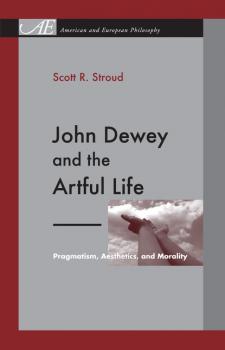Scott R. Stroud
Список книг автора Scott R. StroudJohn Dewey and the Artful Life
Aesthetic experience has had a long and contentious history in the Western intellectual tradition. Following Kant and Hegel, a human’s interaction with nature or art frequently has been conceptualized as separate from issues of practical activity or moral value. This book examines how art can be seen as a way of moral cultivation. Scott Stroud uses the thought of the American pragmatist John Dewey to argue that art and the aesthetic have a close connection to morality. Dewey gives us a way to reconceptualize our ideas of ends, means, and experience so as to locate the moral value of aesthetic experience in the experience of absorption itself, as well as in the experience of reflective attention evoked by an art object.
Kant and the Promise of Rhetoric
Immanuel Kant is rarely connected to rhetoric by those who study philosophy or the rhetorical tradition. If anything, Kant is said to see rhetoric as mere manipulation and as not worthy of attention. In Kant and the Promise of Rhetoric , Scott Stroud presents a first-of-its-kind reappraisal of Kant and the role he gives rhetorical practices in his philosophy. By examining the range of terms that Kant employs to discuss various forms of communication, Stroud argues that the general thesis that Kant disparaged rhetoric is untenable. Instead, he offers a more nuanced view of Kant on rhetoric and its relation to moral cultivation. For Kant, certain rhetorical practices in education, religious settings, and public argument become vital tools to move humans toward moral improvement without infringing on their individual autonomy. Through the use of rhetorical means such as examples, religious narratives, symbols, group prayer, and fallibilistic public argument, individuals can persuade other agents to move toward more cultivated states of inner and outer autonomy. For the Kant recovered in this book, rhetoric becomes another part of human activity that can be animated by the value of humanity, and it can serve as a powerful tool to convince agents to embark on the arduous task of moral self-cultivation.

